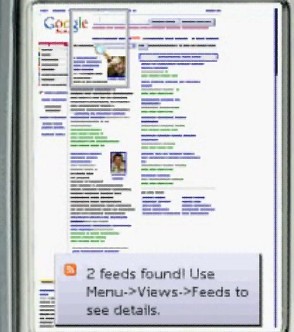Luca Passani, the man behind WURFL, came up with a long rant (entitled “Vodafone UK is abusing its position) about Vodafone regarding their transcoding solution used in the UK(powered by Novarra), which reformats ALL sites visited by their users, and therefore masks the User-Agent. This is causing issues for mobile sites that rely on user agent to provide the right content to the device that requests it.
For example, here’s a regular HTTP request sent by a Nokia 6288:
HTTP_USER_AGENT => Nokia6288/2.0 (05.92) Profile/MIDP-2.0 Configuration/CLDC-1.1
HTTP_X_WAP_PROFILE => “http://nds1.nds.nokia.com/uaprof/N6288r100.xml”
HTTP_ACCEPT => application/vnd.wap.wmlscriptc, text/vnd.wap.wml, application/vnd.wap.xhtml+xml, application/xhtml+xml, text/html, multipart/mixed, */* HTTP_ACCEPT_CHARSET => ISO-8859-1, US-ASCII, UTF-8; Q=0.8, ISO-10646-UCS-2; Q=0.6
HTTP_ACCEPT_LANGUAGE => en
HTTP_ACCEPT_ENCODING => gzip, deflate
HTTP_CONNECTION => Keep-Alive
This is a standard HTTP request format containing the standard HTTP_USER_AGENT string.
Now here’s what the HTTP request looks like with a Nokia 6288 used through Vodafone UK Network:
HTTP_USER_AGENT => = Mozilla/5.0 (X11; U; Linux i686; en-US; rv:1.8.0.7) Gecko/20060909 Firefox/1.5.0.7 MG (Novarra-Vision/6.1)
HTTP_ACCEPT => text/html;q=1.0, text/css; q=1.0, application/x-javascript; q=1.0, text/plain;q=0.8, application/xhtml+xml;q=0.6, application/x-httpd-php;q=0.1, */*;q=0, image/gif; q=1.0, image/jpeg; q=1.0, image/png; q=1.0
HTTP_ACCEPT_CHARSET => ISO-8859-1,utf-8;q=0.7,*;q=0.7
HTTP_ACCEPT_LANGUAGE => en HTTP_ACCEPT_ENCODING => identity;q=1.0, gzip;q=0.1, *;q=0
HTTP_X_NOVARRA_DEVICE_TYPE => 0
HTTP_X_DEVICE_USER_AGENT => Nokia6288/2.0 (05.94) Profile/MIDP-2.0 Configuration/CLDC-1.1
HTTP_X_MOBILE_GATEWAY => Novarra-Vision/6.1 (VF-UK; Server-Only)
HTTP_VIA => HTTP/1.1 glgwsl11 (XMG 724Solutions HTG XMG-31_VODAFONE_M3_B030 20070724.091400), 1.1 Novarra (Vision/6.1), 1.1 frankenstein1:3128 (squid/2.6.STABLE9-20070214)
HTTP_CACHE_CONTROL => max-age=259200
HTTP_CONNECTION => Keep-Alive
You see what’s wrong? Because the page you’re visiting is served by Novarra’s platform, the original user agent is lost. So if you receive a visit on your mobile site from a Vodafone UK customer, there’s no way for you to notice it since the user agent is masked.
Thankfully, there are workarounds for this issue. If you look at the HTTP Request you will see this field: HTTP_X_DEVICE_USER_AGENT, which contains the actual mobile device’s user agent.
It is also possible to be whitelisted by Vodafone, if you have a mobile site and don’t want visitors from Vodafone UK to see a transcoded version of your site, you need to let Vodafone know (send an email to whitelist@vodafone.com , but due to the amount of requests, it may take time before they include you in their whitelist).
So, you may ask, if there are workarounds to this issue, should we still complain? The answer is YES. People active in mobile commerce, mobile web, mobile content delivery etc must make sure that third parties do not change the way their site is supposed to work, because this is going against standards and it is not fair for both users and sites’ owners (who are of course losing money when that kind of issue arise).

